ICGOO在线商城 > 集成电路(IC) > PMIC - 稳压器 - 线性 > LD2981ABM33TR
- 型号: LD2981ABM33TR
- 制造商: STMicroelectronics
- 库位|库存: xxxx|xxxx
- 要求:
| 数量阶梯 | 香港交货 | 国内含税 |
| +xxxx | $xxxx | ¥xxxx |
查看当月历史价格
查看今年历史价格
LD2981ABM33TR产品简介:
ICGOO电子元器件商城为您提供LD2981ABM33TR由STMicroelectronics设计生产,在icgoo商城现货销售,并且可以通过原厂、代理商等渠道进行代购。 LD2981ABM33TR价格参考。STMicroelectronicsLD2981ABM33TR封装/规格:PMIC - 稳压器 - 线性, Linear Voltage Regulator IC Positive Fixed 1 Output 3.3V 100mA SOT-23-5。您可以下载LD2981ABM33TR参考资料、Datasheet数据手册功能说明书,资料中有LD2981ABM33TR 详细功能的应用电路图电压和使用方法及教程。
STMicroelectronics的LD2981ABM33TR是一款低压差线性稳压器(LDO),输出电压为3.3V,最大输出电流为150mA。该器件具有低静态电流、高纹波抑制比(PSRR)和良好的负载/线性调整率,适用于对电源噪声敏感的便携式和电池供电设备。 其主要应用场景包括: 1. 便携式电子产品:如智能手机、平板电脑和手持设备,用于为微处理器、传感器或低功耗外设提供稳定电源。 2. 电池管理系统:在电池供电系统中,将电池电压稳压至3.3V,供MCU、ADC或其他模拟/数字电路使用。 3. 通信模块:如Wi-Fi、蓝牙或RF模块的电源管理,提供干净电源以降低噪声对信号的影响。 4. 工业控制系统:用于PLC、传感器节点或测量设备中,提供稳定、低噪声的电源以确保系统精度和稳定性。 5. 音频和传感器电路:适用于对电源纹波敏感的音频放大器或高精度传感器供电,提升系统性能。 该LDO采用小型封装(如DFN或SOT23-5),适合空间受限的设计,同时具备过热和过流保护功能,提高了系统可靠性。
| 参数 | 数值 |
| 产品目录 | 集成电路 (IC)半导体 |
| 描述 | IC REG LDO 3.3V 0.1A SOT23-5低压差稳压器 3.3V 100mA Positive |
| 产品分类 | |
| 品牌 | STMicroelectronics |
| 产品手册 | |
| 产品图片 |
|
| rohs | 符合RoHS无铅 / 符合限制有害物质指令(RoHS)规范要求 |
| 产品系列 | 电源管理 IC,低压差稳压器,STMicroelectronics LD2981ABM33TR- |
| 数据手册 | |
| 产品型号 | LD2981ABM33TR |
| 产品目录页面 | |
| 产品种类 | 低压差稳压器 |
| 供应商器件封装 | SOT-23-5 |
| 其它名称 | 497-1521-1 |
| 其它有关文件 | http://www.st.com/web/catalog/sense_power/FM142/CL1015/SC312/PF63515?referrer=70071840 |
| 包装 | 剪切带 (CT) |
| 商标 | STMicroelectronics |
| 回动电压—最大值 | 3 mV at 0 A |
| 安装类型 | 表面贴装 |
| 安装风格 | SMD/SMT |
| 封装 | Reel |
| 封装/外壳 | SC-74A,SOT-753 |
| 封装/箱体 | SOT-23 |
| 工作温度 | -40°C ~ 125°C |
| 工厂包装数量 | 3000 |
| 最大工作温度 | + 125 C |
| 最大输入电压 | 16 V |
| 最小工作温度 | - 40 C |
| 最小输入电压 | 2.5 V |
| 标准包装 | 1 |
| 电压-跌落(典型值) | 0.18V @ 100mA |
| 电压-输入 | 最高 16V |
| 电压-输出 | 3.3V |
| 电压调节准确度 | 0.75 % |
| 电流-输出 | 100mA |
| 电流-限制(最小值) | - |
| 稳压器拓扑 | 正,固定式 |
| 稳压器数 | 1 |
| 系列 | LD2981ABM |
| 线路调整率 | 0.014 % / V |
| 负载调节 | - 5 mV |
| 输入偏压电流—最大 | 0.08 mA |
| 输出电压 | 3.3 V |
| 输出电流 | 100 mA |
| 输出端数量 | 1 Output |
| 输出类型 | Fixed |

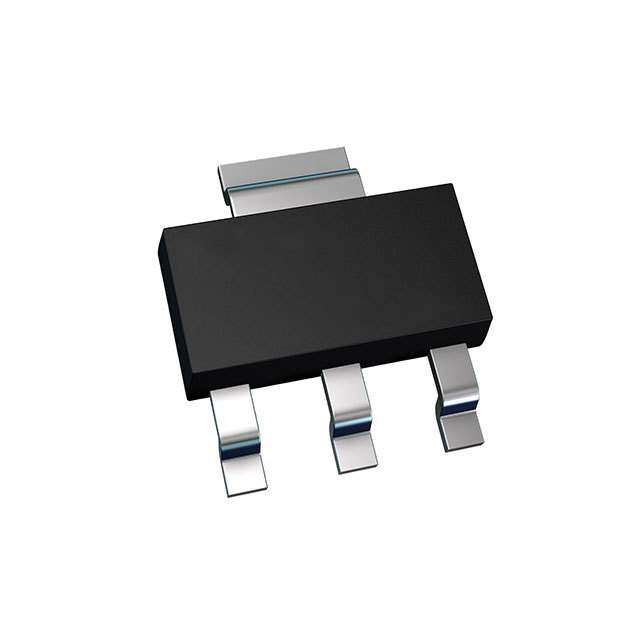


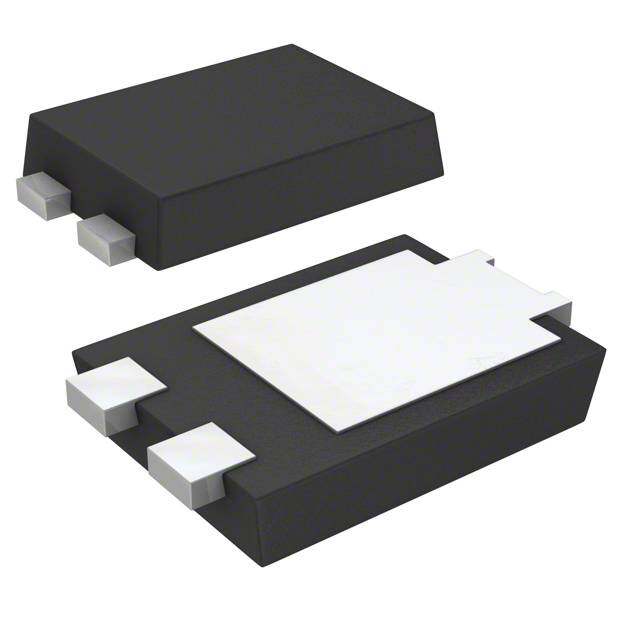
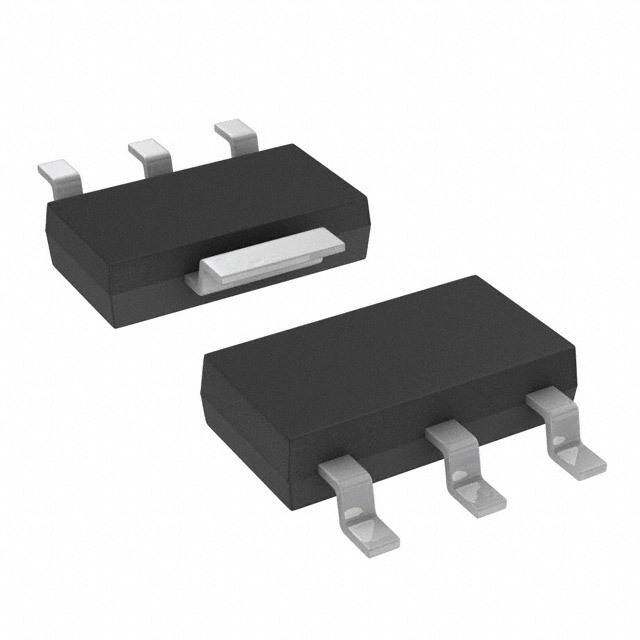
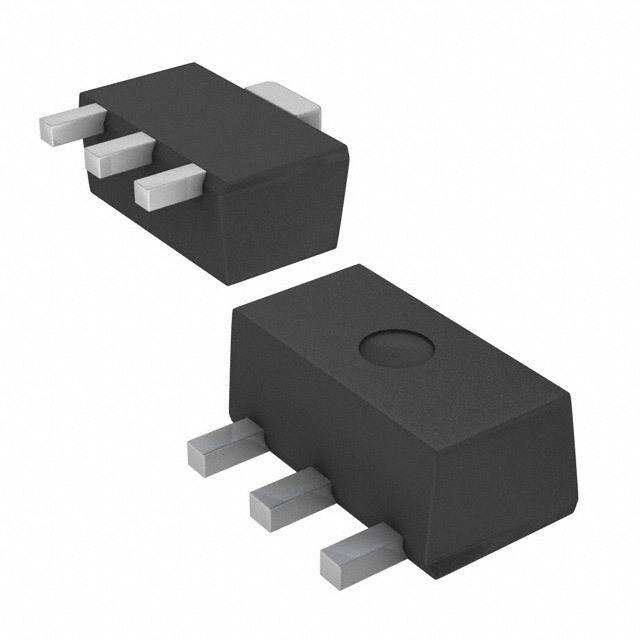

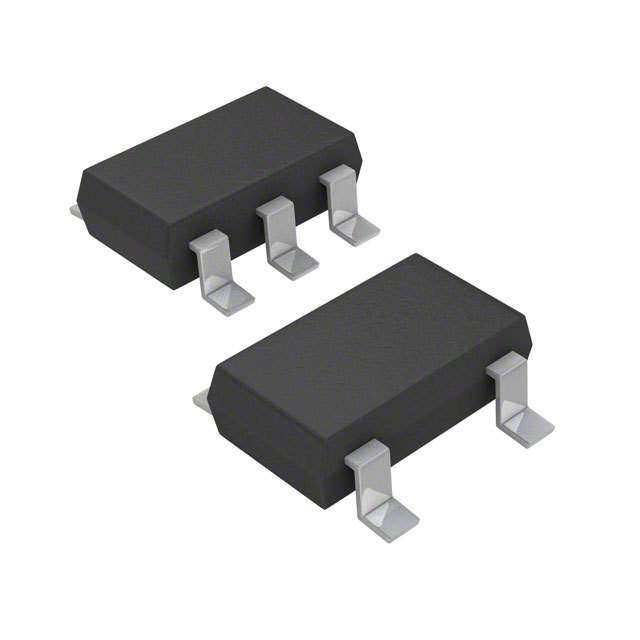

- 商务部:美国ITC正式对集成电路等产品启动337调查
- 曝三星4nm工艺存在良率问题 高通将骁龙8 Gen1或转产台积电
- 太阳诱电将投资9.5亿元在常州建新厂生产MLCC 预计2023年完工
- 英特尔发布欧洲新工厂建设计划 深化IDM 2.0 战略
- 台积电先进制程称霸业界 有大客户加持明年业绩稳了
- 达到5530亿美元!SIA预计今年全球半导体销售额将创下新高
- 英特尔拟将自动驾驶子公司Mobileye上市 估值或超500亿美元
- 三星加码芯片和SET,合并消费电子和移动部门,撤换高东真等 CEO
- 三星电子宣布重大人事变动 还合并消费电子和移动部门
- 海关总署:前11个月进口集成电路产品价值2.52万亿元 增长14.8%
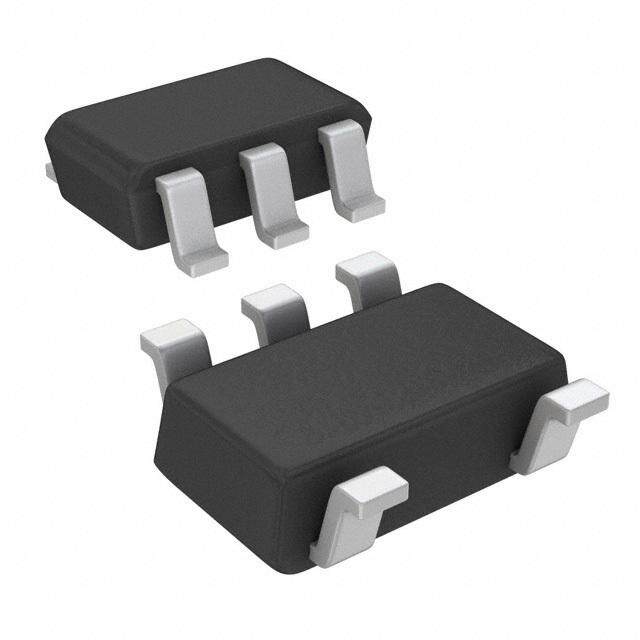


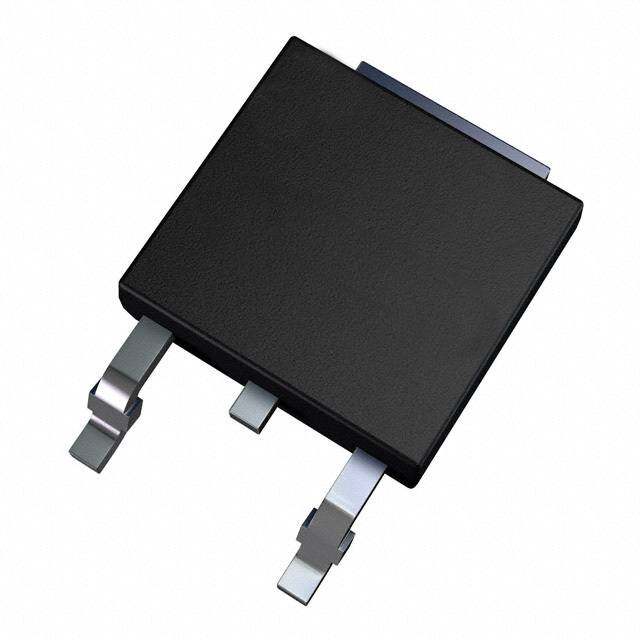
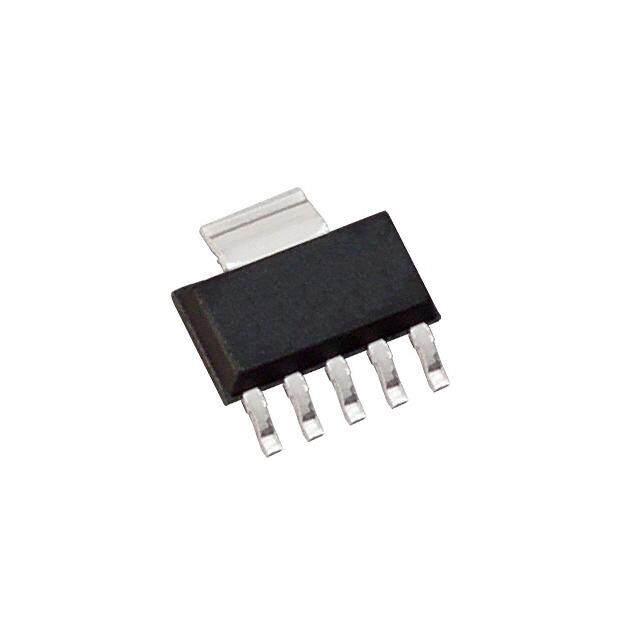


PDF Datasheet 数据手册内容提取
LD2981 Ultra low-drop voltage regulators with inhibit Datasheet - production data Description The LD2981 is a 100 mA fixed-output voltage regulator. The low-drop voltage and the ultra low quiescent current make them suitable for low noise, low power applications and in battery powered systems. The quiescent current in sleep mode is less than 1 μA when INHIBIT pin is pulled low. Shutdown logic control function is available on pin n° 3 (TTL compatible). This means that when the device is Features used as local regulator, it is possible to put a part Ultra low dropout voltage (0.17 V typ. at 100 of the board in standby, decreasing the total mA load, 7 mV typ. at 1 mA load) power consumption. The LD2981 is designed to Very low quiescent current (80 μA typ. at no work with low ESR ceramic capacitor. Typical load in on mode; max 1 μA in off mode) applications are in cellular phone, palmtop/laptop Guaranteed output current up to 100 mA computer, personal digital assistant (PDA), Logic-controlled electronic shutdown personal stereo, camcorder and camera. Output voltage of 2.5; 3.0; 3.3; 5.0 V Internal current and thermal limit ± 0.75% tolerance output voltage available (A version) Output low noise voltage 160 μVRMS Temperature range: -40 to 125 °C Small package SOT23-5L and SOT-89 Fast dynamic response to line and load changes April 2016 DocID6279 Rev 17 1/27 This is information on a product in full production. www.st.com
Contents LD2981 Contents 1 Diagram ............................................................................................ 5 2 Pin configuration ............................................................................. 6 3 Maximum ratings ............................................................................. 7 4 Typical application .......................................................................... 8 5 Electrical characteristics ................................................................ 9 6 Typical performance characteristics ........................................... 12 7 Application notes .......................................................................... 16 7.1 External capacitors .......................................................................... 16 7.2 Input capacitor ................................................................................. 16 7.3 Output capacitor .............................................................................. 16 7.4 Important ......................................................................................... 16 7.5 Inhibit input operation ...................................................................... 16 7.6 Reverse current ............................................................................... 17 8 Package information ..................................................................... 18 8.1 SOT-89 package information .......................................................... 18 8.2 SOT-89 packing information............................................................ 21 8.3 SOT23-5L package information ...................................................... 22 8.4 SOT23-5L packing information ........................................................ 24 9 Ordering information ..................................................................... 25 10 Revision history ............................................................................ 26 2/27 DocID6279 Rev 17
LD2981 List of tables List of tables Table 1: Pin description .............................................................................................................................. 6 Table 2: Thermal data ................................................................................................................................. 6 Table 3: Absolute maximum ratings ........................................................................................................... 7 Table 4: Electrical characteristics for LD2981AB ....................................................................................... 9 Table 5: Electrical characteristics for LD2981C ........................................................................................ 10 Table 6: SOT-89 mechanical data ............................................................................................................ 19 Table 7: SOT-89 carrier tape mechanical data ......................................................................................... 21 Table 8: SOT23-5L package mechanical data ......................................................................................... 22 Table 9: SOT23-5L tape and reel mechanical data .................................................................................. 24 Table 10: Order codes .............................................................................................................................. 25 Table 11: Document revision history ........................................................................................................ 26 DocID6279 Rev 17 3/27
List of figures LD2981 List of figures Figure 1: Schematic diagram ...................................................................................................................... 5 Figure 2: Pin connections (top view) ........................................................................................................... 6 Figure 3: Application circuit ......................................................................................................................... 8 Figure 4: Output voltage vs temperature .................................................................................................. 12 Figure 5: Dropout voltage vs temperature ................................................................................................ 12 Figure 6: Line regulation vs temperature .................................................................................................. 12 Figure 7: Load regulation vs temperature ................................................................................................. 12 Figure 8: Dropout voltage vs temperature ................................................................................................ 13 Figure 9: Quiescent current vs temperature ............................................................................................. 13 Figure 10: Quiescent current vs output current ........................................................................................ 13 Figure 11: Off mode quiescent current vs temperature ............................................................................ 13 Figure 12: Quiescent current vs input voltage .......................................................................................... 13 Figure 13: Dropout voltage vs output current ........................................................................................... 13 Figure 14: Inhibit input current vs temperature ......................................................................................... 14 Figure 15: Inhibit voltage vs temperature ................................................................................................. 14 Figure 16: Supply voltage rejection vs frequency ..................................................................................... 14 Figure 17: Noise voltage vs frequency ..................................................................................................... 14 Figure 18: Best case: highest output version ........................................................................................... 14 Figure 19: Worst case: lowest output version ........................................................................................... 14 Figure 20: Load transient response .......................................................................................................... 15 Figure 21: Line transient response ........................................................................................................... 15 Figure 22: Reverse current test circuit ...................................................................................................... 17 Figure 23: SOT-89 package outline .......................................................................................................... 18 Figure 24: SOT-89 recommended footprint .............................................................................................. 20 Figure 25: SOT-89 carrier tape outline ..................................................................................................... 21 Figure 26: SOT23-5L package outline ...................................................................................................... 22 Figure 27: SOT23-5L recommended footprint .......................................................................................... 23 Figure 28: SOT23-5L tape and reel outline .............................................................................................. 24 4/27 DocID6279 Rev 17
LD2981 Diagram 1 Diagram Figure 1: Schematic diagram DocID6279 Rev 17 5/27
Pin configuration LD2981 2 Pin configuration Figure 2: Pin connections (top view) Table 1: Pin description Pin n° Pin n° Symbol Name and function SOT23-5L SOT-89 1 3 VIN Input port 2 2 GND Ground pin Control switch ON/OFF. Inhibit is not internally pulled-up; it 3 INHIBIT cannot be left floating. Disable the device when connected to GND or to a positive voltage less than 0.18 V 4 NC Not connected 5 1 VOUT Output port Table 2: Thermal data Symbol Parameter SOT23-5L SOT-89 Unit RthJC Thermal resistance junction-case 81 15 °C/W RthJA Thermal resistance junction-ambient 255 110 °C/W 6/27 DocID6279 Rev 17
LD2981 Maximum ratings 3 Maximum ratings Table 3: Absolute maximum ratings Symbol Parameter Value Unit VI DC input voltage -0.3 to 16 V VINH INHIBIT input voltage -0.3 to 16 V IO Output current Internally limited PD Power dissipation Internally limited TSTG Storage temperature range -55 to 150 °C TOP Operating junction temperature range -40 to 125 °C Absolute maximum ratings are those values beyond which damage to the device may occur. Functional operation under these condition is not implied. DocID6279 Rev 17 7/27
Typical application LD2981 4 Typical application Figure 3: Application circuit Inhibit pin is not internally pulled-up then it must not be left floating. Disable the device when connected to GND or to a positive voltage less than 0.18 V. 8/27 DocID6279 Rev 17
LD2981 Electrical characteristics 5 Electrical characteristics (T = 25 °C, V = V + 1 V, C = 1 μF, C = 2.2 μF, I = 1 mA, V = 2 V, unless J I O(NOM) I O O INH otherwise specified). Table 4: Electrical characteristics for LD2981AB Symbol Parameter Test conditions Min. Typ. Max. Unit Operating input VOP voltage 2.5 16 V IO = 1 mA 2.977 3 3.023 VO Output voltage IO = 1 to 100 mA 2.97 3.03 V IO = 1 to 100 mA, TJ = -40 to 125 °C 2.925 3.075 IO = 1 mA 3.275 3.3 3.325 VO Output voltage IO = 1 to 100 mA 3.267 3.333 V IO = 1 to 100 mA, TJ = -40 to 125 °C 3.217 3.383 IO = 1 mA 4.962 5 5.038 VO Output voltage IO = 1 to 100 mA 4.95 5.05 V IO = 1 to 100 mA, TJ = -40 to 125 °C 4.875 5.125 VO(NOM) + 1 < VIN < 16 V, IO = 1 mA 0.003 0.014 ΔVO Line regulation %/V TJ = -40 to 125 °C 0.032 IO = 0 80 100 IO = 0, TJ = -40 to 125 °C 150 IO = 1 mA 100 150 Quiescent IO = 1 mA, TJ = -40 to 125 °C 200 current ON MODE IO = 25 mA 250 400 IQ µA IO = 25 mA, TJ = -40 to 125 °C 800 IO = 100 mA 1000 1300 IO = 100 mA, TJ = -40 to 125 °C 2600 VINH < 0.3 V 0.8 OFF MODE VINH < 0.15 V, TJ = -40 to 125 °C 2 IO = 0 1 3 IO = 0, TJ = -40 to 125 °C 5 IO = 1 mA 7 10 Dropout IO = 1 mA, TJ = -40 to 125 °C 15 VDROP voltage (1) IO = 25 mA 70 100 mV IO = 25 mA, TJ = -40 to 125 °C 150 IO = 100 mA 180 250 IO = 100 mA, TJ = -40 to 125 °C 375 Short circuit ISC current RL = 0 150 mA DocID6279 Rev 17 9/27
Electrical characteristics LD2981 Symbol Parameter Test conditions Min. Typ. Max. Unit Supply voltage SVR rejection CO = 10 µF, f = 1 KHz 63 dB Inhibit input logic LOW = Output OFF, VINH low TJ = -40 to 125 °C 0.18 V Inhibit input logic HIGH = Output ON, VINL high TJ = -40 to 125 °C 1.6 V Inhibit input VINH = 0 V, TJ = -40 to 125 °C 0 -1 IINH current µA VINH = 5 V, TJ = -40 to 125 °C 5 15 Output noise eN voltage BW = 300 Hz to 50 KHz, CO = 10 µF 160 µVRMS Thermal TSHDN shutdown 170 °C Notes: (1) For VO < 2.5 V dropout voltage can be calculated according to the minimum input voltage in full temperature range. (T = 25 °C, V = V +1 V, C = 1 μF, C = 2.2 μF, I = 1 mA, V = 2 V, unless J I O(NOM) I O O INH otherwise specified) Table 5: Electrical characteristics for LD2981C Symbol Parameter Test conditions Min. Typ. Max. Unit Operating input VOP voltage 2.5 16 V IO = 1 mA 2.468 2.5 2.531 VO Output voltage IO = 1 to 100 mA 2.45 2.55 V IO = 1 to 100 mA, TJ = -40 to 125 °C 2.412 2.587 IO = 1 mA 2.962 3 3.037 VO Output voltage IO = 1 to 100 mA 2.94 3.06 V IO = 1 to 100 mA, TJ = -40 to 125 °C 2.895 3.105 IO = 1 mA 3.258 3.3 3.341 VO Output voltage IO = 1 to 100 mA 3.234 3.366 V IO = 1 to 100 mA, TJ = -40 to 125 °C 3.184 3.415 IO = 1 mA 4.937 5 5.062 VO Output voltage IO = 1 to 100 mA 4.9 5.1 V IO = 1 to 100 mA, TJ = -40 to 125 °C 4.825 5.175 VO(NOM) + 1 < VIN < 16 V, IO = 1 mA 0.003 0.014 ΔVO Line regulation %/V TJ = -40 to 125 °C 0.032 10/27 DocID6279 Rev 17
LD2981 Electrical characteristics Symbol Parameter Test conditions Min. Typ. Max. Unit IO = 0 80 100 IO = 0, TJ = -40 to 125 °C 150 IO = 1 mA 100 150 Quiescent current IO = 1 mA, TJ = -40 to 125 °C 200 ON MODE IO = 25 mA 250 400 IQ µA IO = 25 mA, TJ = -40 to 125 °C 800 IO = 100 mA 1000 1300 IO = 100 mA, TJ = -40 to 125 °C 2600 VINH < 0.3 V 0.8 OFF MODE VINH < 0.15 V, TJ = -40 to 125 °C 2 IO = 0 1 3 IO = 0, TJ = -40 to 125 °C 5 IO = 1 mA 7 10 Dropout IO = 1 mA, TJ = -40 to 125 °C 15 VDROP voltage (1) IO = 25 mA 70 100 mV IO = 25 mA, TJ = -40 to 125 °C 150 IO = 100 mA 180 250 IO = 100 mA, TJ = -40 to 125 °C 375 Short circuit ISC current RL = 0 150 mA Supply voltage SVR rejection CO = 10 µF, f = 1 KHz 63 dB Inhibit input LOW = Output OFF, VINH logic low TJ = -40 to 125 °C 0.18 V Inhibit input HIGH = Output ON, VINL logic high TJ = -40 to 125 °C 1.6 V Inhibit input VINH = 0 V, TJ = -40 to 125 °C 0 -1 IINH current μF VINH = 5 V, TJ = -40 to 125 °C 5 15 Output noise eN voltage BW = 300 Hz to 50 KHz, CO = 10 µF 160 µVRMS Thermal TSHDN shutdown 170 °C Notes: (1) For VO < 2.5 V dropout voltage can be calculated according to the minimum input voltage in full temperature range. DocID6279 Rev 17 11/27
Typical performance characteristics LD2981 6 Typical performance characteristics (T = 25 °C, V = V +1 V, C = 1 μF, C = 2.2 μF, V = 2 V, unless otherwise J I O(NOM) I O INH specified). Figure 4: Output voltage vs temperature Figure 5: Dropout voltage vs temperature Figure 6: Line regulation vs temperature Figure 7: Load regulation vs temperature 12/27 DocID6279 Rev 17
LD2981 Typical performance characteristics Figure 8: Dropout voltage vs temperature Figure 9: Quiescent current vs temperature Figure 11: Off mode quiescent current vs Figure 10: Quiescent current vs output current temperature Figure 12: Quiescent current vs input voltage Figure 13: Dropout voltage vs output current DocID6279 Rev 17 13/27
Typical performance characteristics LD2981 Figure 14: Inhibit input current vs temperature Figure 15: Inhibit voltage vs temperature Figure 16: Supply voltage rejection vs frequency Figure 17: Noise voltage vs frequency Figure 18: Best case: highest output version Figure 19: Worst case: lowest output version 14/27 DocID6279 Rev 17
LD2981 Typical performance characteristics Figure 20: Load transient response Figure 21: Line transient response DocID6279 Rev 17 15/27
Application notes LD2981 7 Application notes 7.1 External capacitors Like any low-dropout regulator, the LD2981 requires external capacitors for regulator stability. This capacitor must be selected to meet the requirements of minimum capacitance and equivalent series resistance. We suggest to solder input and output capacitors as close as possible to the relative pins. 7.2 Input capacitor An input capacitor whose value is 1 μF is required with the LD2981 (amount of capacitance can be increased without limit). This capacitor must be located a distance of not more than 0.5" from the input pin of the device and returned to a clean analog ground. Any good quality ceramic, tantalum or film capacitors can be used for this capacitor. 7.3 Output capacitor The LD2981 is designed specifically to work with ceramic output capacitors. It may also be possible to use Tantalum capacitors, but these are not as attractive for reasons of size and cost. By the way, the output capacitor must meet both the requirement for minimum amount of capacitance and ESR (equivalent series resistance) value. The Figure 18: "Best case: highest output version" and Figure 19: "Worst case: lowest output version" show the allowable ESR range as a function of the output capacitance. These curves represent the stability region over the full temperature and IO range. Due to the different loop gain, the stability improves for higher output versions and so the suggested minimum output capacitor value, if low ESR ceramic type is used, is 1 μF for output voltages equal or major than 3.8 V, 2.2 μF for output voltages from 2.85 to 3.3 V, and 3.3 μF for the other versions. However, if an output capacitor lower than the suggested one is used, it’s possible to make stable the regulator adding a resistor in series to the capacitor (see Figure 18: "Best case: highest output version" and Figure 19: "Worst case: lowest output version" to choose the right value according to the used version and keeping in account that the ESR of ceramic capacitors has been measured @ 100 kHz). 7.4 Important The output capacitor must maintain its ESR in the stable region over the full operating temperature to assure stability. Also, capacitor tolerance and variation with temperature must be considered to assure the minimum amount of capacitance is provided at all times. This capacitor should be located not more than 0.5" from the output pin of the device and returned to a clean analog ground. 7.5 Inhibit input operation The inhibit pin can be used to turn OFF the regulator when pulled low, so drastically reducing the current consumption down to less than 1 μA. When the inhibit feature is not used, this pin must be tied to VI to keep the regulator output ON at all times. To assure proper operation, the signal source used to drive the inhibit pin must be able to swing above and below the specified thresholds listed in the electrical characteristics section under V V . Any slew rate can be used to drive the inhibit. IH IL 16/27 DocID6279 Rev 17
LD2981 Application notes 7.6 Reverse current The power transistor used in the LD2981 has not an inherent diode connected between the regulator input and output. If the output is forced above the input, no current will flow from the output to the input across the series pass transistor. When a V voltage is applied on REV the output, the reverse current measured, according to the test circuit in Figure 22: "Reverse current test circuit", flows to the GND across the two feedback resistors. This current typical value is 160 μA. R and R resistors are implanted type; typical values are, 1 2 respectively, 42.6 kΩ and 51.150 kΩ. Figure 22: Reverse current test circuit DocID6279 Rev 17 17/27
Package information LD2981 8 Package information In order to meet environmental requirements, ST offers these devices in different grades of ECOPACK® packages, depending on their level of environmental compliance. ECOPACK® specifications, grade definitions and product status are available at: www.st.com. ECOPACK® is an ST trademark. 8.1 SOT-89 package information Figure 23: SOT-89 package outline 18/27 DocID6279 Rev 17
LD2981 Package information Table 6: SOT-89 mechanical data mm Dim. Min. Typ. Max. A 1.40 1.60 B 0.44 0.56 B1 0.36 0.48 C 0.35 0.44 C1 0.35 0.44 D 4.40 4.60 D1 1.62 1.83 D3 0.90 E 2.29 2.60 e 1.42 1.57 e1 2.92 3.07 H 3.94 4.25 H1 2.70 3.10 K 1° 8° L 0.89 120 R 0.25 β 90° DocID6279 Rev 17 19/27
Package information LD2981 Figure 24: SOT-89 recommended footprint 20/27 DocID6279 Rev 17
LD2981 Package information 8.2 SOT-89 packing information Figure 25: SOT-89 carrier tape outline Table 7: SOT-89 carrier tape mechanical data mm Dim. Value Tolerance Ao 4.91 ± 0.10 Bo 4.52 ± 0.10 Ko 1.90 ± 0.10 F 5.50 ± 0.10 E 1.75 ± 0.10 W 12 ± 0.30 P2 2 ± 0.10 Po 4 ± 0.10 P1 8 ± 0.10 T 0.30 ± 0.10 D Ø 1.55 ± 0.05 D1 Ø 1.60 ± 0.10 DocID6279 Rev 17 21/27
Package information LD2981 8.3 SOT23-5L package information Figure 26: SOT23-5L package outline Table 8: SOT23-5L package mechanical data mm Dim. Min. Typ. Max. A 0.90 1.45 A1 0 0.15 A2 0.90 1.30 b 0.30 0.50 c 0.09 0.20 D 2.95 E 1.60 e 0.95 H 2.80 L 0.30 0.60 θ 0° 8° 22/27 DocID6279 Rev 17
LD2981 Package information Figure 27: SOT23-5L recommended footprint Dimensions are in mm DocID6279 Rev 17 23/27
Package information LD2981 8.4 SOT23-5L packing information Figure 28: SOT23-5L tape and reel outline A D N T Po Bo Ko Ao P Table 9: SOT23-5L tape and reel mechanical data mm Dim. Min. Typ. Max. A 180 C 12.8 13.0 13.2 D 20.2 N 60 T 14.4 Ao 3.13 3.23 3.33 Bo 3.07 3.17 3.27 Ko 1.27 1.37 1.47 Po 3.9 4.0 4.1 P 3.9 4.0 4.1 24/27 DocID6279 Rev 17
LD2981 Ordering information 9 Ordering information Table 10: Order codes AB version C version Output voltage SOT23-5L SOT-89 SOT23-5L SOT-89 LD2981CM25TR 2.5 V LD2981ABM30TR LD2981CM30TR 3.0 V LD2981ABM33TR LD2981ABU33TR LD2981CM33TR LD2981CU33TR 3.3 V LD2981ABM50TR LD2981ABU50TR LD2981CM33TR LD2981CU50TR 5.0 V DocID6279 Rev 17 25/27
Revision history LD2981 10 Revision history Table 11: Document revision history Date Revision Changes 25-Jul-2006 12 Order codes updated. 14-Feb-2008 13 Added: Table 1 on page 1. 14-Jul-2008 14 Modified: Table 1 on page 1 and Table 10 on page 23. Document name changed from LD2981ABxx and LD2981Cxx to LD2981. Updated Table 4 and Table 5. 25-Nov-2013 15 Updated Section 8: Package information and Section 8.4: SOT-89 packing information. Minor text changes in title, in features and description in cover page. Updated Section 8: Package information. Minor text 16-Mar-2015 16 changes. Updated Section 8: "Package information". 01-Apr-2016 17 Minor text changes. 26/27 DocID6279 Rev 17
LD2981 IMPORTANT NOTICE – PLEASE READ CAREFULLY STMicroelectronics NV and its subsidiaries (“ST”) reserve the right to make changes, corrections, enhancements, modifications, and improvements to ST products and/or to this document at any time without notice. Purchasers should obtain the latest relevant information on ST products before placing orders. ST products are sold pursuant to ST’s terms and conditions of sale in place at the time of order acknowledgement. Purchasers are solely responsible for the choice, selection, and use of ST products and ST assumes no liability for application assistance or the design of Purchasers’ products. No license, express or implied, to any intellectual property right is granted by ST herein. Resale of ST products with provisions different from the information set forth herein shall void any warranty granted by ST for such product. ST and the ST logo are trademarks of ST. All other product or service names are the property of their respective owners. Information in this document supersedes and replaces information previously supplied in any prior versions of this document. © 2016 STMicroelectronics – All rights reserved DocID6279 Rev 17 27/27
Mouser Electronics Authorized Distributor Click to View Pricing, Inventory, Delivery & Lifecycle Information: S TMicroelectronics: LD2981CU33TR LD2981CU50TR LD2981CM30TR LD2981CM33TR LD2981CM50TR LD2981ABU33TR LD2981ABU50TR LD2981ABM50TR LD2981ABM30TR LD2981ABM33TR
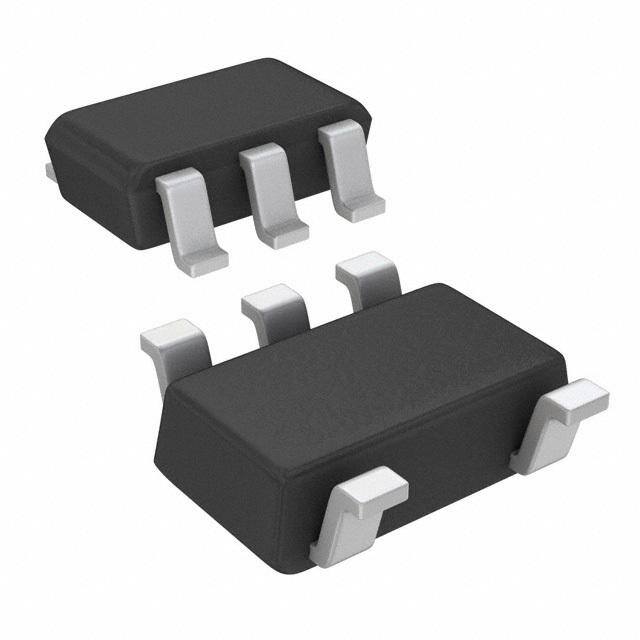
 Datasheet下载
Datasheet下载

